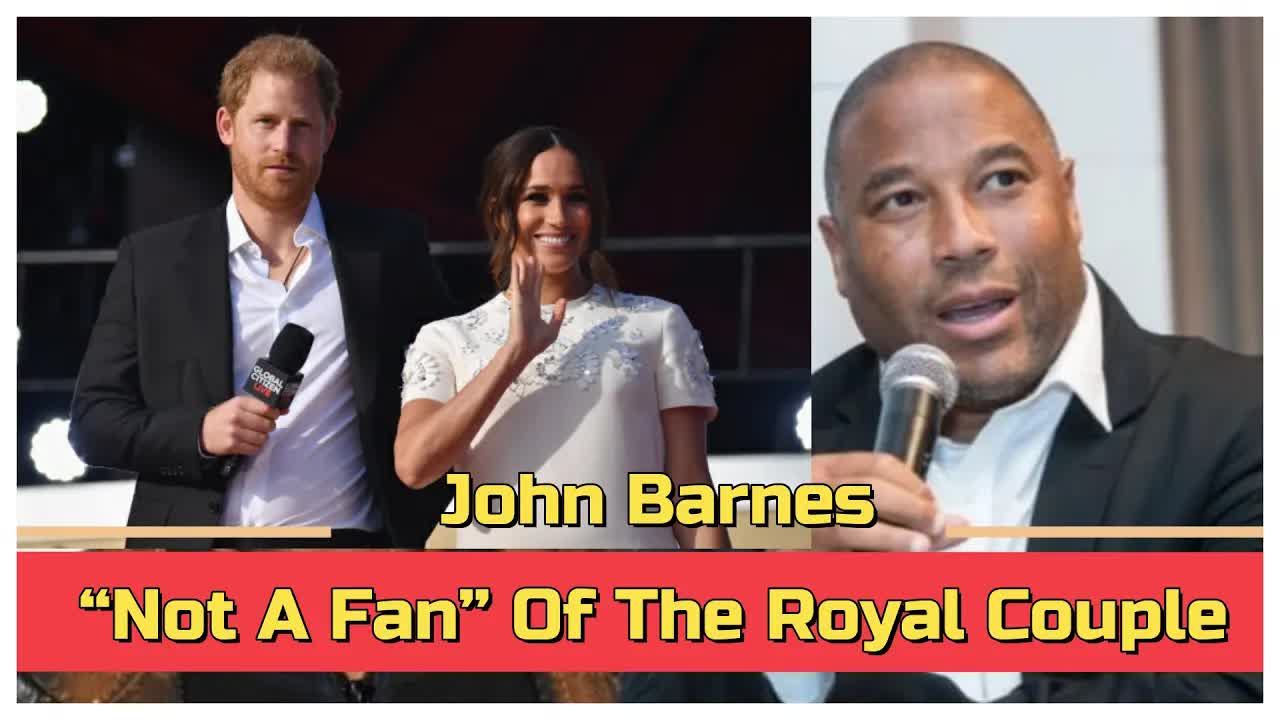In a recent discussion that’s stirring up quite the buzz, former football star John Barnes weighed in on the ongoing narrative surrounding Prince Harry and Meghan Markle, particularly focusing on the implications of race and public perception.
This conversation comes at a time when many are eager to unpack the layers behind the couple’s experiences within the royal family and the media’s portrayal of them.
Barnes, who has penned a book addressing racism, believes that the discourse about the skin color of Harry and Meghan’s child is not only valid but also a common topic of conversation among couples of different ethnic backgrounds.
He argues that it’s natural for parents to wonder what their child might look like, especially in a multicultural context.
“If I’m the mom and you’re the dad, what’s our baby going to look like?” he mused, highlighting that such speculations are part of everyday life.
Critics of Harry and Meghan often question why the couple remains a focal point in the news cycle.
Some suggest that they should simply fade from public interest.
Yet Barnes contends that as long as Harry and Meghan continue to share narratives that seem misleading, it’s crucial to address these issues head-on.
“We can’t just let them get away with lies,” he emphasized, suggesting that transparency is key to holding public figures accountable.
During an interview with Oprah Winfrey, Harry alluded to a private conversation regarding concerns about their child’s skin tone, a statement that has sparked significant debate.
While Harry expressed shock at the inquiry, Barnes pointed out the irony of Harry bringing it up if he intended to keep it private.
This contradiction raises questions about the couple’s motives in sharing certain aspects of their story.
Barnes further elaborated on the royal family’s response to the allegations of racism, noting that they publicly denied any such behavior.
“We are very much not a racist family,” was the Duke of Cambridge’s defense.
However, Barnes insists that discussions about race and appearance are inevitable, particularly given the family’s history and the societal implications surrounding mixed-race relationships.
The former footballer underscored that the conversation about skin color is not inherently negative.
In fact, he believes it’s a legitimate concern that reflects broader societal views.
He argued that if there were serious issues regarding race, the marriage itself would never have taken place.
“If the color of the child was a problem, they wouldn’t have married in the first place,” he pointed out.
Barnes also addressed the public’s reaction to the couple, noting that many people may dislike Meghan for reasons unrelated to her race.
He warned against conflating personal opinions with racism, emphasizing the importance of distinguishing between character critique and racial bias.
“You can dislike someone for their actions without it being about race,” he stated firmly.
Despite his criticisms, Barnes clarified that he is neither pro nor anti-royal.
His focus lies on the behavior and character of the individuals involved.
He believes that understanding the nuances of race and public perception is essential for anyone discussing the royal couple.
“If you don’t know the backstory, maybe it’s best to sit this one out,” he suggested.
The conversation around Harry and Meghan is complex, and Barnes believes there’s a lot to learn from examining their actions and how they are perceived.
He argued that constructive criticism could lead to personal growth, not just for the couple but for society as a whole.
“It’s about recognizing our flaws and striving to improve,” he remarked.
Ultimately, Barnes feels that the dialogue surrounding the Duke and Duchess of Sussex should not be dismissed as mere gossip or hate.
Instead, it should be seen as an opportunity for reflection and understanding.
“What I say isn’t hurting anyone; it could actually help them see things differently,” he concluded.
As this conversation continues to unfold, it becomes increasingly clear that the intersection of race, identity, and public perception will remain a pivotal topic in discussions about the royal family.
Whether one supports or critiques Harry and Meghan, the underlying themes of race and acceptance are crucial in shaping the narrative moving forward.










